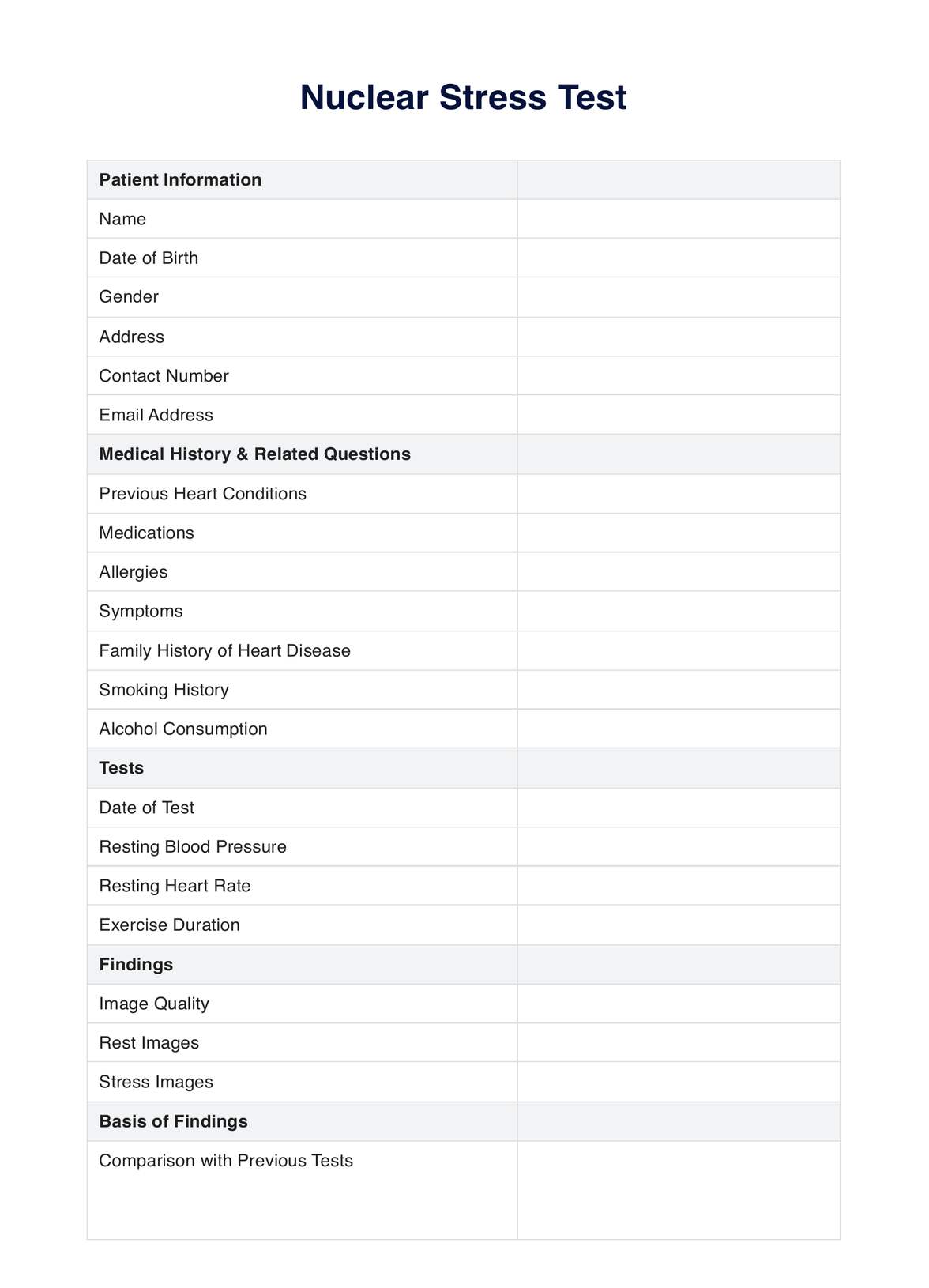Carepatron prioritizes patient data security, employing advanced encryption methods and stringent data protection protocols to ensure that all medical information remains confidential and secure.

Explore Carepatron for Nuclear Stress Tests: the perfect blend of advanced technology and patient-centric care. Dive in to elevate your cardiology practice!
Carepatron prioritizes patient data security, employing advanced encryption methods and stringent data protection protocols to ensure that all medical information remains confidential and secure.
Absolutely! Carepatron is designed to be versatile, allowing integration with various diagnostic tools and software, ensuring a comprehensive healthcare experience.
Yes, Carepatron offers detailed tutorials and customer support to assist healthcare professionals in navigating and maximizing the platform's features.
EHR and practice management software
*No credit card required
Free
$0/usd
Unlimited clients
Telehealth
1GB of storage
Client portal text
Automated billing and online payments